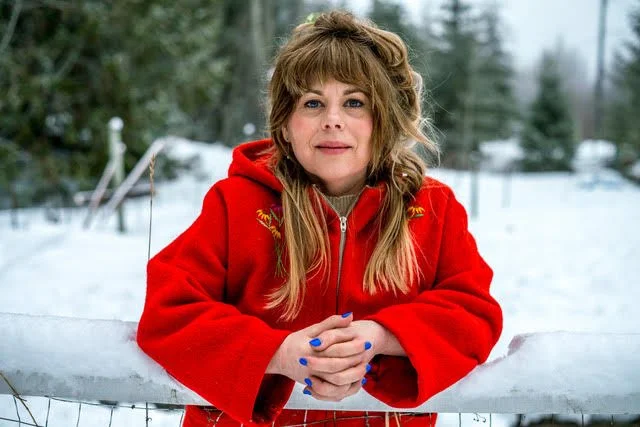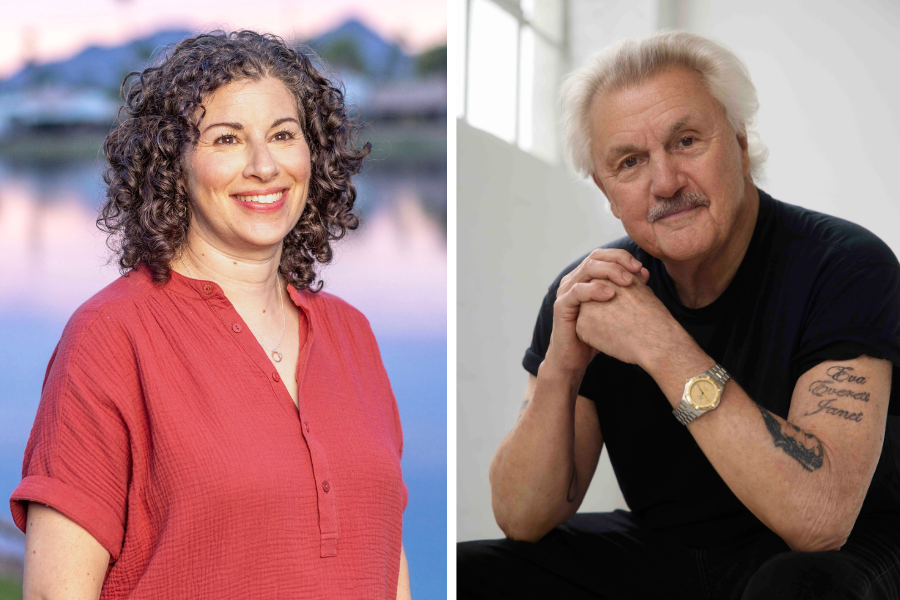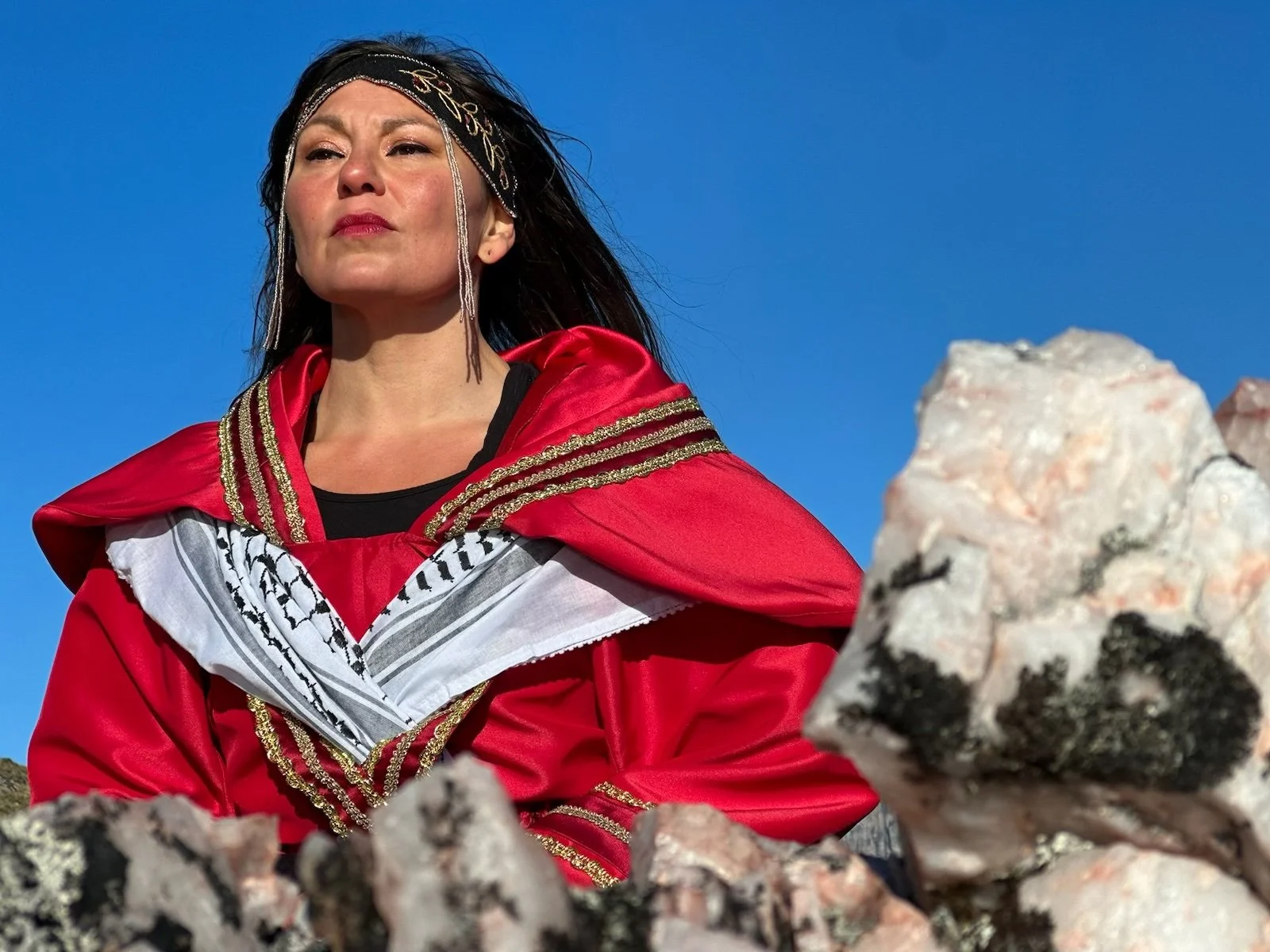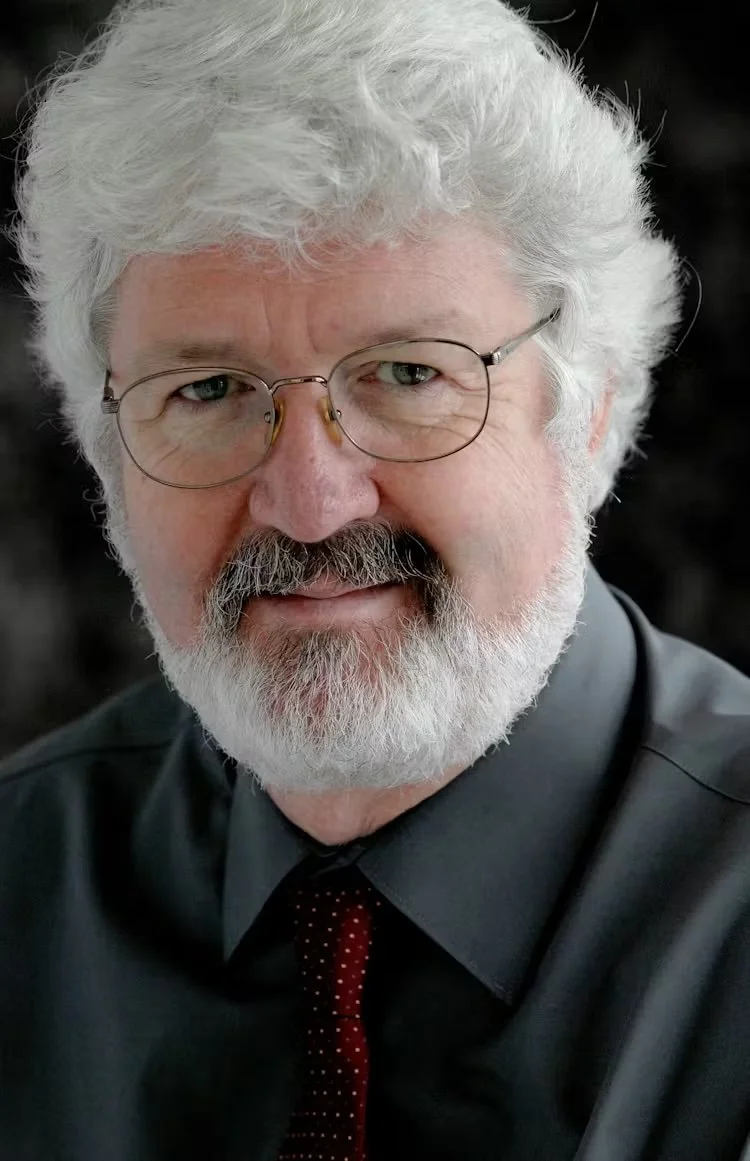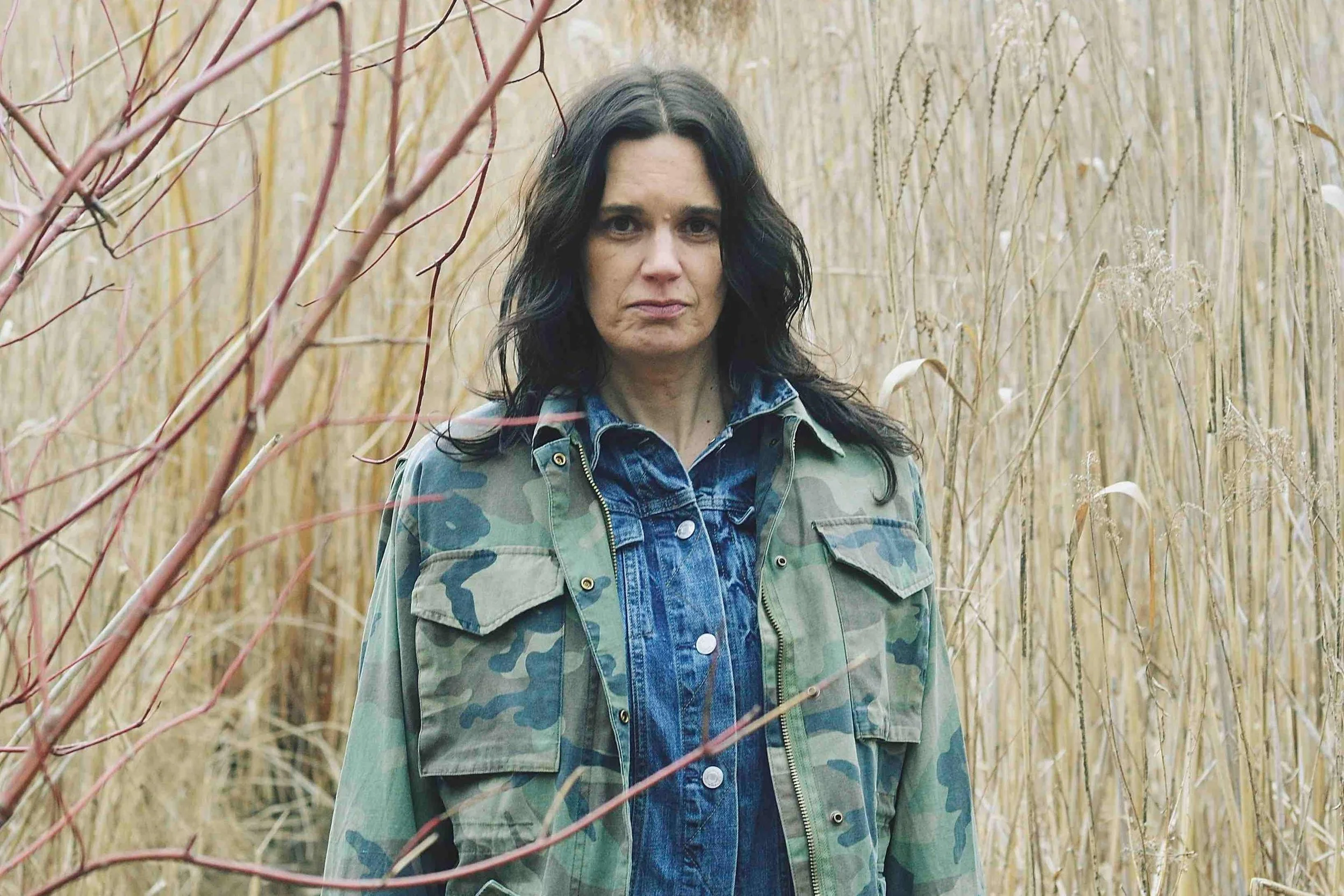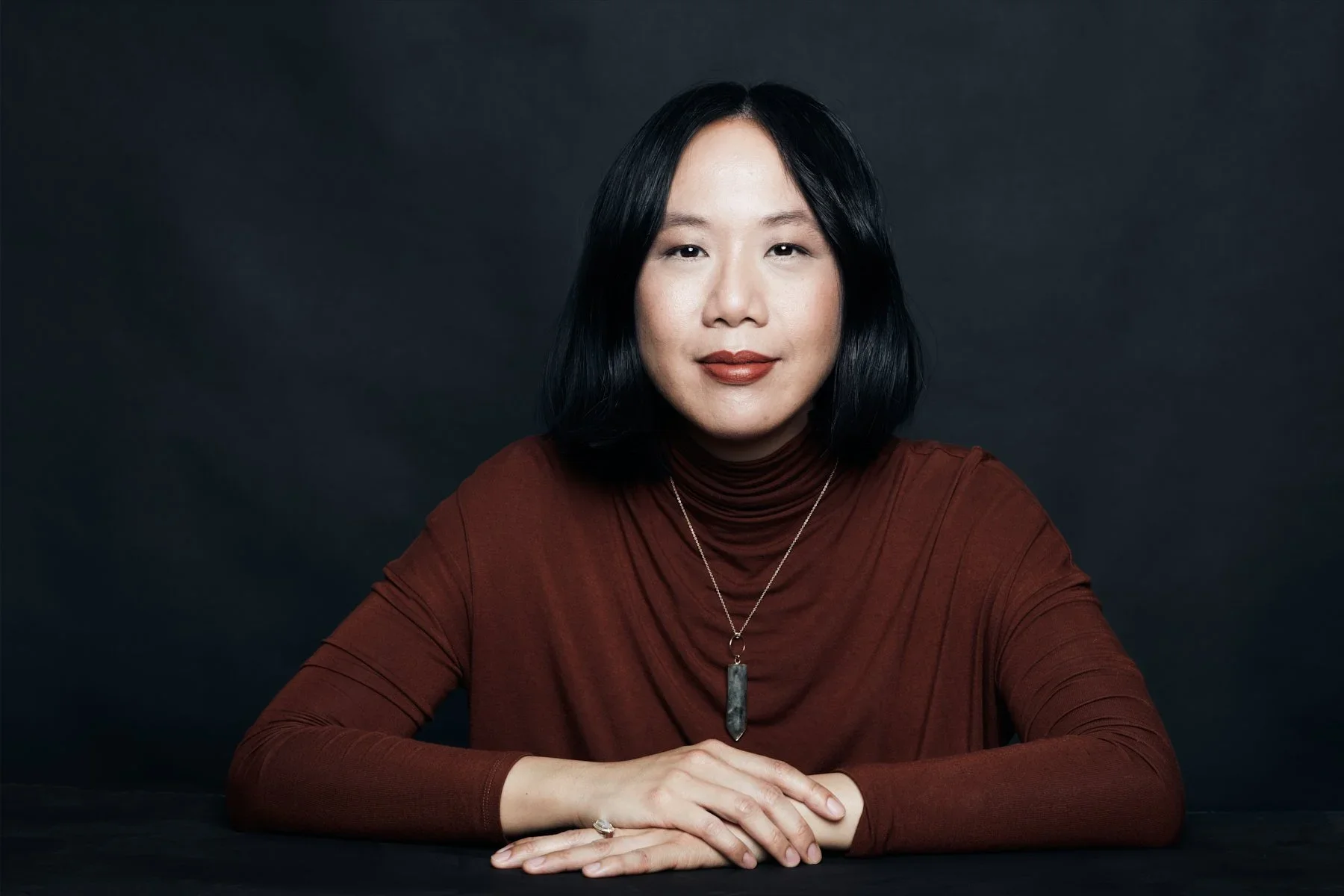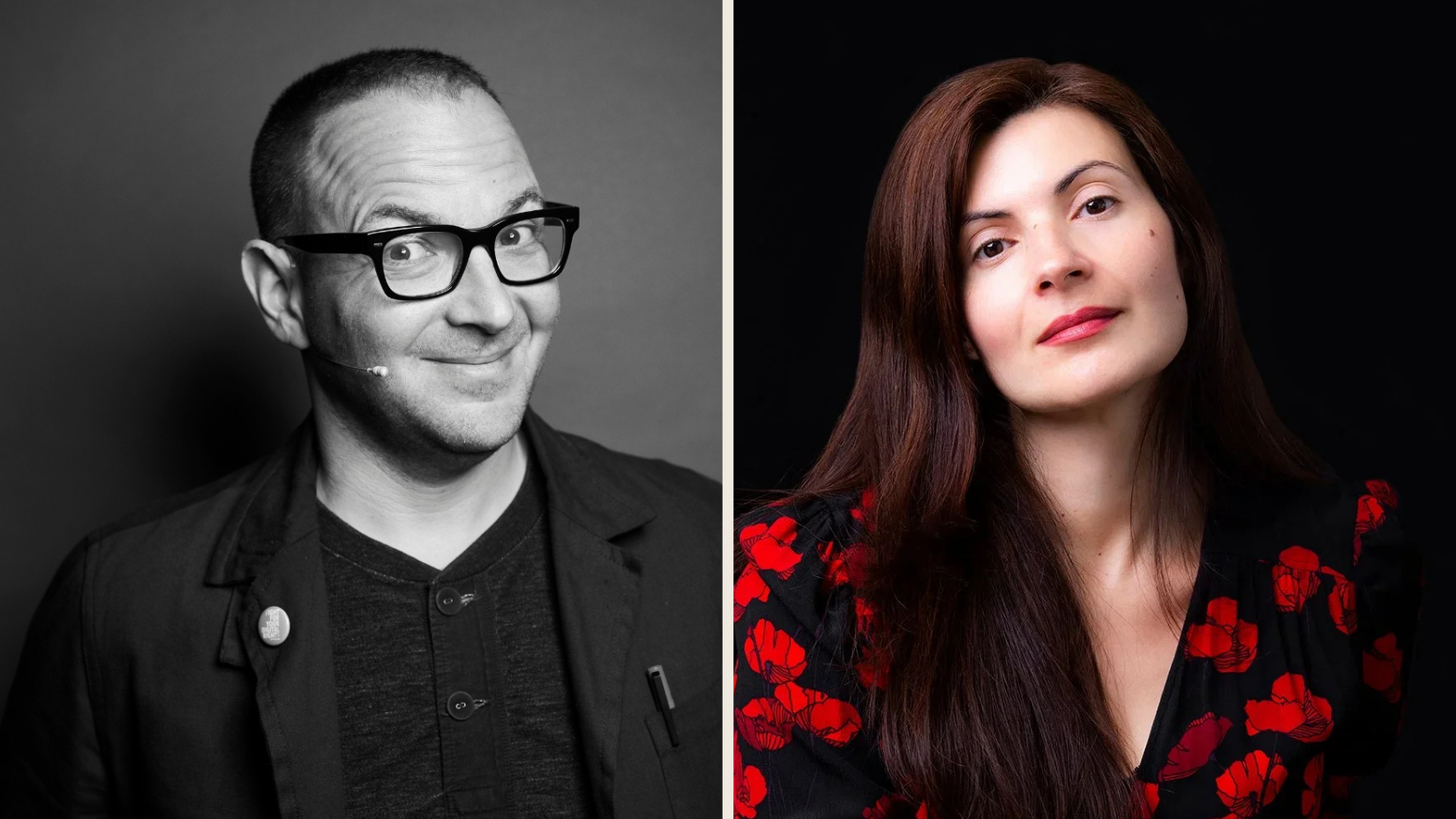Stir Q&A: Skid Dogs author Emelia Symington Fedy talks teen years and consent
The Chop Theatre artist returns to Armstrong for her aching yet funny new memoir
Emelia Symington Fedy is “trying to start a more nuanced and active conversation about violence against women”.
VANCOUVER AUTHOR AND theatre artist Emelia Symington Fedy journeys back to her small hometown of Armstrong, B.C. for her new memoir Skid Dogs.
The book moves between the harrowing news of the 2011 murder of a girl on the train tracks in the farming town—and Fedy’s race to leave East Van and get home to her ailing mother, and the writer’s own experiences as a young teen in the ’90s, hanging out on those same tracks with her friends.
The book is a fearless, uncomfortable, but endlessly relatable confrontation of the sexual coercion, aggression, and assault that surrounded her just as she and her friends were figuring out who they were. Skid Dogs ends up being an unfiltered rumination on consent, and a time and place when girls were blamed for whatever happened to them if they got drunk. But it’s also a tender portrait of what it’s like to grow up and the freedom found through friendships—all punctuated by vivid period details like Short Stop slushies, Walkmans, and the smell of Dippity-Do hair gel, Herbal Essence shampoo, and BodyShop Dewberry perfume.
Those who have watched the Studio 58 grad’s plays (Trying to be Good, Through the Gaze of a Navel) or listened to her CBC Radio broadcast essays will notice a similar blend of laugh-out-loud comedy and aching honesty.
Stir caught up with her in the Shuswap, where she’s now living with her own young family after spending years as a well-known figure on the Vancouver theatre scene.
After so many years in Vancouver, how did you end up in the Shuswap and did you feel drawn back to the smaller-town life you write about in the book?
I was raised in the Shuswap. I left the day high-school ended. So, for me, this is a returning—something I never thought would happen by choice. But, my children were becoming “city kids”. For “country folk” being a “city kid” means you’re scared of dirt and wildlife and space to roam and I wanted them to have the skills to be adaptive to difference and discomfort. So, I decided that because the first half of their life had been spent in the utopic bubble of East Vancouver, with similar politics, class and lifestyle as our neighbours, I wanted the second half of their childhood be more rural, interacting daily with people who don’t hold the same beliefs as us, even might have counter-beliefs, but will happily plow our driveway at first snowfall. They need to learn the skill of building complicated relationships, relying on neighbours, and appreciate something as simple as “seasons”. They love the snow. They love their dog. They miss having access to what they want when they want it. I think it’s a great thing. And, I can feel the spirit of my mom cheering me on. She’d be so happy for us.
Was it the real-life tragedy that happened in your hometown in 2011 that first made you dig back into the sexual coercion and aggression that permeated the culture of your ‘90s teen years? Or was it something that had been on your mind for a long time?
Standing at the spot where Taylor was killed, the same tracks I grew up on, I immediately understood that this physical place—which had only ever been a source of comfort—had been ruined. The phrase that ticker-taped through my head was, “Where will all the Armstrong girls go now to feel safe?” It was this question that made me realize that in the 1990s we had experienced sexual violence and danger throughout our girlhood too. It was culturally accepted and we’d survived—but we’d be hurt. So, to honour Taylor, and push the conversation forward, I’m trying to start a more nuanced and active conversation about violence against women. Not be frozen by the horrific stories we know are brutal and wrong, but to start bringing to light the current, daily, ongoing reality of rape culture, which includes hilarity and pleasure.
How were you able to travel back to your 13- and 14-year-old self, and get so vulnerable with her, stepping back into her shoes—or button-fly Levi’s?
Lots of googling “Body Shop perfume,” and “most popular 1991 jeans,” and going down internet fashion wormholes. But honestly, the thing that made remembering easiest was reconnecting with my girl gang. After a few hours on the phone every few months of writing, my mind would overflow with the cackling and smells and hysteria of us. Whenever we spoke we returned to being 13-years-old again. We took on the voices, we had the pet names- it all came back effortlessly. And sometimes our memories differed and we discussed that, but mostly we’d spend the calls laughing at the ridiculousness of being a kid, before we knew we were being watched. That was the revelation actually, that amongst all the dark, shocking memories, it was the most joyful ones that prevailed.
Writer Jenn Ashworth wrote, “Some days it feels like writing truthfully about her own life is the most subversive thing a woman can do.” Do you feel like your fearless honesty can be empowering or freeing?
Why else would I eviscerate myself in public? I’m not dancing like no one’s watching. I’m praying that the dance reaches and transforms people. I’m a theatre artist by trade. Making autobiographical art is my form of activism. I use myself—shame, discomfort, fear and raucous indignation—to speak the truth of what I assume is many. I’ve had a lot of women, age 65 and age 15, tell me that they relate to the reality of Skid Dogs but they’ve never put words to it before. I start with a spark, a question: in this book the question was “If it’s not rape, what’s the word for what happened to us?” And through investigating, remembering, and turning the question slant, I try to come up with a fulfilling answer. Now, I didn’t find a word for the banal, relentless picking over of my body when I was a teenager, but I’ve developed clarity that it happened as part of a much larger cultural issue than just me in my small farming town. That discovery in itself brings healing.
Was it just as difficult for you to relive and dissect the conflicted relationship you had with your mother—something anyone who’s been a teenage girl can relate to?
This was the content I held myself to the fire for. My mother’s relationship was the one I wanted to most understand and repair. How can you resent the woman that made you? Recoil at her touch and find her simple presence irritating? I waited a few years until after mom died to publicly reflect on how I mistreated my mom. For the first few years it was only blinding shame. Now, I see a girl in profound pain, lashing out where she felt safest, and my strong mother holding that anger for me. The truth that I’ve come to is that my mother probably saw and knew why my behaviour was sometimes so hurtful, and she took the blows, as I do for my children now—that’s brought some relief. The only relationship in the world that lets you be your darkest self is motherhood. And when you know better you do better. Skid Dogs might be a warning cry to women who still have moms—she will be dead for longer than she was your mother, take her shit, hug her little body, so that when she leaves you know you’ve done your best. Obviously it’s not as simple as this, but sharing our complex relationship, and my part in it, has been a way to turn my regret into action.
How has theatre informed your memoir writing, and where do both sit in your practice—are they separate or intertwined?
What a lovely question. Theatre is live. Theatre can grow and change with an audience in real time. The audience, in fact, is necessary to making this happen. Writing a book feels more like a solo venture. I can’t try a joke out before opening night. I can’t experiment with the risky line and cut it later. It’s all out there—a snapshot of my brain in time—forever. That’s terrifying to me. I was unprepared for the vulnerability hangover this book brought. I’m used to being clapped for- or poorly reviewed- and then taking that info and making adaptations to make the art better. I read Skid Dogs now and think “GAHHHHHHHHHH I should have used the word ‘last’ instead of ‘only.’ NOOOOOOOO, I shouldn’t have cut that line.” And there it is, in print, forevermore. There’s an ownership of the work that’s more confronting than theatre. That said, theatre can get 50-200 bums in seats per night and a book has no limit of readers. I don’t think I even answered your question. How’s this: Ephemerally, the purpose of all my art is an attempt to disrupt and make social change. But technically, in writing there is right and wrong—there are rules to follow, like grammar, which makes the forms very separate in my brain.
You have kids who are growing up now: do you feel like things have improved around consent and empowerment for teenage girls, especially since #MeToo? Do we still blame girls who get drunk for what happens to them?
Yep. We sure do. I’ve got teenage girls in my life and I’m sorry to report it may have gotten worse. A girl giving a boy oral sex is now as common as a first kiss—and that may be a consensual act, but the problem is that it’s not reciprocal. With porn so accessible, boys are being trained at an even younger age that girls’ bodies are to be practised on. If porn showed men giving women pleasure and having a mutually shared experience, great. But it doesn’t. Women are the objects for the subject. It’s archaic and ridiculous that we still smile and bare it. It’s also rude that “not all men” stops at rape. Maybe you didn’t hold her down. But did you ask? Did you keep checking in? Was she drunk? Were you careful and sensitive? This is what I demand of men, and what I want girls to demand of boys, my own included. My best friend has daughters and the only rule she’s taught them is: are you receiving as much pleasure as you are giving? It’s pretty simple really.
Why’d you write Skid Dogs?
It's a pretty dark book. I don’t hold back and I tell the story as grotesquely and relentlessly as I experienced it. But the higher purpose of Skid Dogs is to be bolstered by “Girl Joy”—that brief window in a girls’ life, when she’s with her best friends, wild and brash, with no idea that eyes are tracking them. That is freedom. I want that moment of power remembered— so that as grown women we can re-create it, and so that the girls on their way up can keep the window open for longer- could we imagine- for forever.


